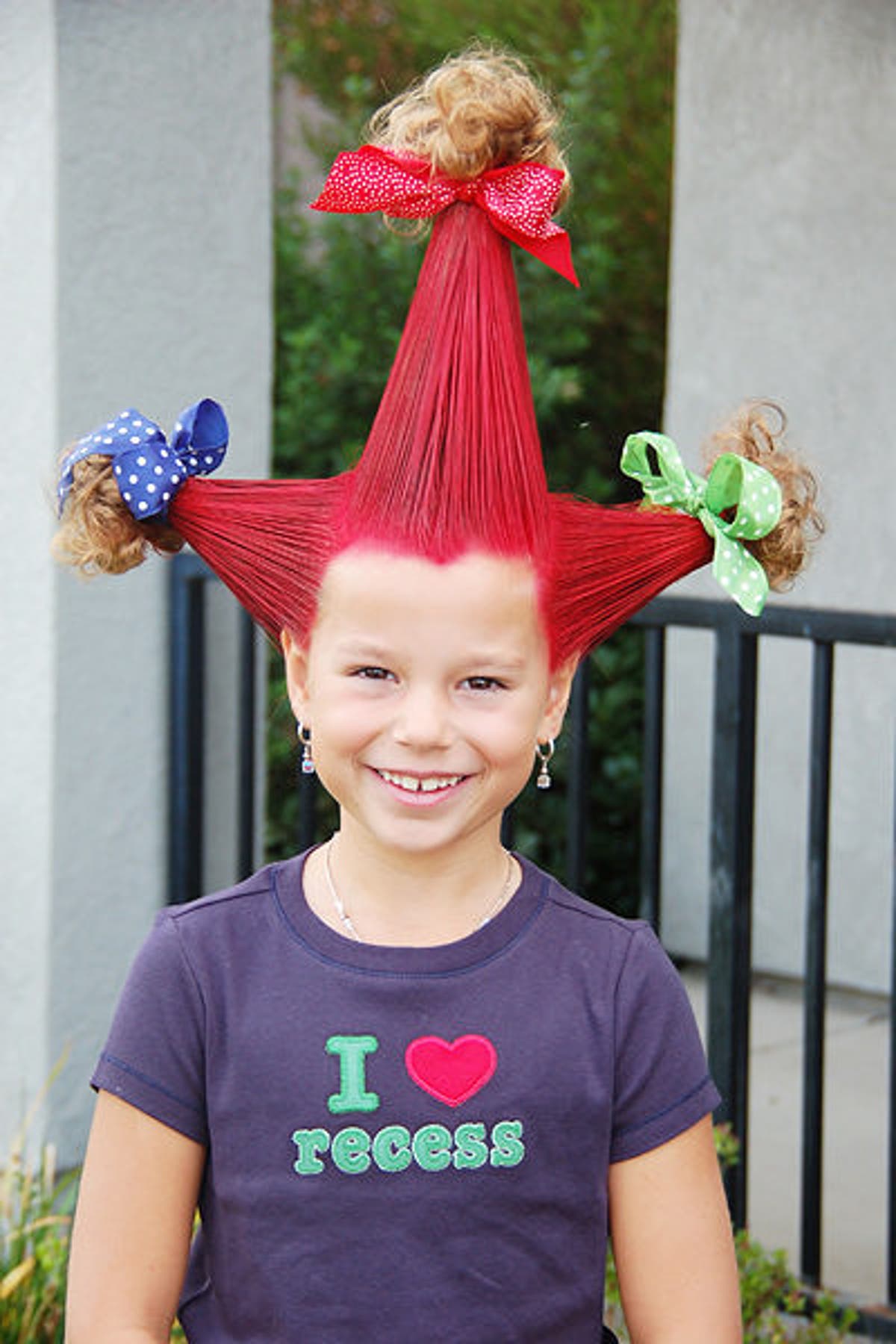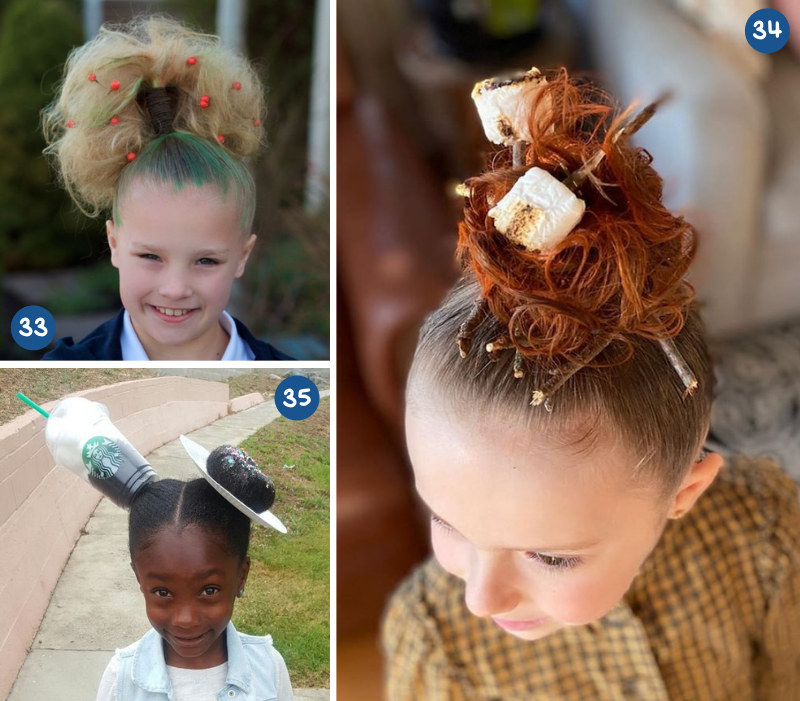Crazy Hair Day: Styles, Tips, And Ideas
Is hair just hair? Absolutely not. From Don King's electrifying halo to a child's gravity-defying spray-painted masterpiece on Crazy Hair Day, hair is a statement, a canvas, a cultural touchstone, and sometimes, even a lightning rod for conspiracy theories.
Hair is deeply personal. Its often the first thing people notice about us, and we, in turn, notice about others. We craft it, color it, curl it, and cut it to reflect our inner selves, our aspirations, and our place in the world. But what happens when hair transcends mere self-expression and becomes a symbol, a distraction, or even a perceived weapon in a psychological battle? The spectrum of hairs significance is surprisingly broad, ranging from the whimsical fun of Crazy Hair Day to the perceived manipulation tactics attributed to those with unconventional locks.
| Bio Data & Personal Information | Career & Professional Information |
|---|---|
| Don King (born August 20, 1931) | Boxing promoter known for his flamboyant personality and involvement in numerous high-profile fights. |
| Place of Birth: Cleveland, Ohio | Promoted fights for Muhammad Ali, George Foreman, Mike Tyson, and many others. |
| Known for: Signature hairstyle, flamboyant personality, legal controversies, and promoting some of the biggest boxing matches in history. | Founded Don King Productions. |
Learn more about Don King on Britannica.
Consider Don King, the legendary boxing promoter. His gravity-defying hair became as iconic as the fighters he represented. Some might dismiss it as mere eccentricity, but its impossible to deny its impact. Its a visual shorthand for the man himself bombastic, larger-than-life, and unforgettable. It's part of his brand, a carefully cultivated image that draws attention and sets him apart. In a world of slick suits and calculated maneuvers, King's hair is a declaration of individuality, a bold refusal to conform.
Yet, perceptions of "crazy hair" can be loaded. For some, it evokes a sense of unease, a subconscious link to the unconventional, even the unstable. Think of the cultural tropes the mad scientist with frizzy hair askew, the eccentric artist with a wild mane, the conspiracy theorist with unkempt locks. These images, however unfair, contribute to a societal bias against those who dare to defy conventional grooming standards. One commenters observation about Don King "an old man with crazy hair, gold chains, and rings" speaks volumes about how quickly judgments are formed based on appearance.
On the other end of the spectrum is the joyful, unadulterated fun of Crazy Hair Day. For children, it's a chance to unleash their creativity, to transform themselves into walking works of art. Hair becomes a playground for imagination, adorned with glitter, pipe cleaners, and an array of colorful accessories. It's a celebration of individuality, a temporary escape from the mundane, and a chance to embrace the absurd.
But even within this lighthearted context, there are nuances. One persons crazy is anothers everyday. A young person experimenting with vibrant blue hair might feel self-conscious about pairing it with brightly colored clothing, while others effortlessly rock the rainbow look. The pressure to conform, even within the realm of nonconformity, can be surprisingly strong.
Then there are those who believe that hair is more than just a style statement. Some see it as a focal point for distraction, a tool employed by those seeking to manipulate or control. The idea that someone might use their unconventional hair to divert attention from a nefarious agenda, while certainly outlandish, speaks to a deep-seated anxiety about hidden motives and unseen forces. It's a reminder that in a world saturated with information and misinformation, appearances can be deceiving.
From the intricacies of braiding wavy hair to combat morning frizz to the challenges of maintaining dyed hair, the everyday realities of hair care are a constant reminder of its physical presence in our lives. We spend time, money, and effort taming, styling, and perfecting it. We fret over split ends, gray hairs, and bad hair days. Its a part of our daily routines, a source of both pride and frustration.
The discussion about hair, in all its forms, reflects broader societal conversations about individuality, conformity, and perception. Whether its the calculated flamboyance of a public figure, the innocent creativity of a child on Crazy Hair Day, or the anxieties projected onto those with unconventional styles, hair is never just hair. Its a reflection of who we are, who we want to be, and how we are perceived by the world around us.
Ultimately, the meaning we ascribe to hair, whether our own or someone else's, reveals more about ourselves than it does about the hair itself. It's a mirror reflecting our biases, our anxieties, and our capacity for joy and self-expression. So the next time you see someone with "crazy hair," take a moment to consider the story it might tell. It could be more interesting than you think.


